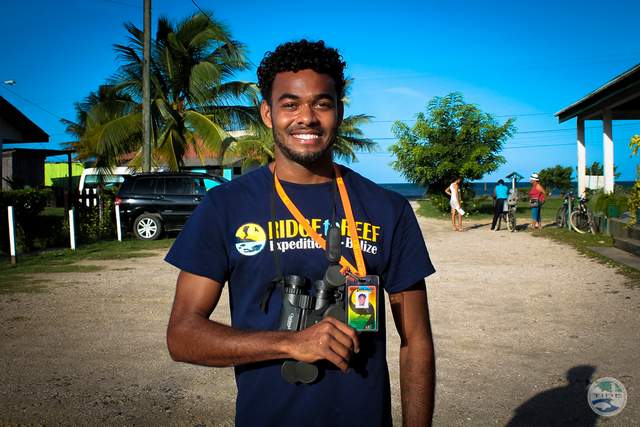

Capacity building has been an important component of developing the R2R program. Prior to this program, TIDE had one tour guide on staff, and a number of ‘community researchers’, who are trained to carry out part time research and monitoring work.
With the program starting small and growing gradually, it was impossible to hire a full staff of fully qualified staff from the off-set, so R2R invested in those staff already working with TIDE to provide additional employment opportunities for them.
Since inception, capacity building amongst staff has continued in an effort to continually ensure that participants have a great experience with knowledgeable, professional staff. This has included providing SCUBA training, tour guide training, science training, marketing training, accounting training, and health and safety training.
Volunteer safety is considered priority, so staff undertake regular health and safety training, and follow risk assessment and emergency procedures set out by R2R.
TIDE already had a number of trusted community researchers, who were available and willing to partake in training opportunities and then work on the R2R team. By providing training to individuals that were already known to the organization, R2R ensured it was investing in enthusiastic people that are passionate about the work.
Another important thing is to plan ahead for training requirements. Most participants book in advance, so R2R has been able to ensure that its staff were adequately trained well in advance.
One of the major challenges with implementing this building block, has been staff retention once trained.
Sometimes, training was provided to individuals so that they can better serve R2R, however due to R2R not running at capacity, only part time work can be provided. Some individuals then seek full time employment elsewhere, and are unavailable when R2R needs them to assist with groups. On the one hand, R2R and TIDE are proud to support young people moving into full time employment, however at the same time it leaves the program without the staff it needs.
Since inception, R2R has tried to reduce losses on investment, by requiring those receiving training to contribute towards training costs through salary deductions. This has ensured staff are retained within the program for a longer period of time, but the challenge is still faced.
Because R2R offers a range of programs, from marine, to terrestrial, to community, it hasn’t been practical to build the capacity of just one person. However, for programs that perhaps have a narrower range of programming, this may work.